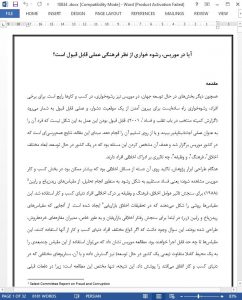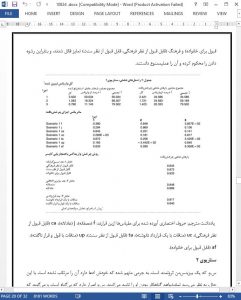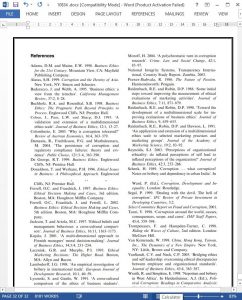Introduction
In Mauritius, as in the rest of the developing world, bribery is a common characteristic of business. To some people, the practice of bribery provides an easy way out and is viewed as acceptable (Select Committee Report on Fraud and Corruption, 2001), as distinct from being accepted as an inevitable practice, with a feeling of resignation. This paper is based on the results of a survey conducted in Mauritius, the objective of which was to determine how different dimensions – moral, cultural and duty – impact on ethical perceptions in a developing nation.
Conclusion
The results give evidence of a strong cultural factor that explained the responses to the scenarios. The data pertaining to previous studies were all from the Western world, more specifically, the United States. The application of the R&R scale in Mauritius presented a new opportunity, considering that the scale, so far applied to marketing ethics in the developed world, was being used in a developing economy in the context of business more generally.
Respondents were exposed to three scenarios and they evaluated each case somewhat differently, depending upon the seriousness of the ethical problem. Generally speaking, however, the results give evidence of the strong reliance on cultural factors and confirm that moral evaluations are specific to situations. While earlier studies emphasised the idea of implicit contract and promise as being inherent in the evaluation of an ethical problem, this theory does not hold in the case of Mauritius. In each of the scenarios that composed the survey, there is a contractual/duty dimension which is complementary to the moral dimension.











